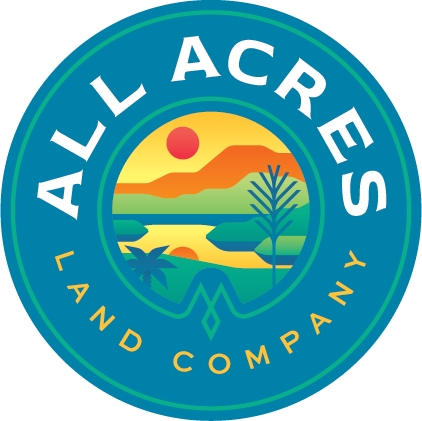When you are ready to sell your land how do you determine the value of your land in Florida?
Three Methods of Appraisal
Estimating the value of any kind of real estate in Florida – and elsewhere – has three typical methods of appraisal.
First, there’s the income approach. An appraiser will look at rental rates for other similar properties to get a good idea of the potential income that the property is expected to produce. Needless to say, the income method isn’t typically applicable to vacant land unless there’s a cash producing component like a ground or net lease of some kind.
Second, there’s the cost approach. The appraiser evaluates how much it would cost to rebuild the current property from ground up to its existing setup. This approach has a lot more variables, such as current market prices for things like building materials and labor. This method also doesn’t apply to vacant land because (typically) there’s no improvements, or they’re minor improvements at best.
Third, there’s the sales approach. The appraiser will analyze recent sales in the area where your property is located for similar vacant land properties that have actually sold. You’ll hear these sales referred to as comparables, or “comps” for short. This is the most common method for determining the value of your land Florida. You’re always welcome to call us here at All Acres Land Company at (850) 788-3767 for more information on these methods.
Going Beyond Just Recent Sales…
There are plenty of additional factors than the other sales in the area to determine the value of your land.
How is the property zoned? What is it’s current and future designated land use by the city or county? If your land zoned for commercial use at the end of a residential block, the value is going to be completely different than if it’s also a residential lot or acreage.
Does your land have direct road access? If it’s a residential lot and its on a main road (a painted line road, high traffic road, or a 4 lane road for example), that might decrease the value, but on the other hand, if it’s commercial or industrial zoned, that might make the land more valuable. Land on a paved road is typically preferred by buyers – dirt, gravel, or limerock roads typically are valued less by buyers.
What’s directly adjacent to and in the area around your land? Your property’s zoning and land use matters again here. If you have a residential lot, but your neighbors are run down houses or trailers, this will affect the price a buyer is willing to pay. If you have a commercial property and you’re near main roads and other commercial properties, this will also affect the price a buyer is willing to pay.
For Florida vacant land properties in particular, it’s critical to take into consideration flood zones and wetlands. If your land is in an area that is quick to flood or in a designated FEMA flood zone (flood zone A, AE, etc), your land is much less desirable than a property in a flood zone X. Wetlands, depending on the amount, their location on your property, and local building setback requirements for wetlands, decrease a property’s value. If wetlands cover most if not all of the property, the property is practically unbuildable and unfortunately therefore has little value.
What are the holding costs of the property? Property taxes are the main holding cost for every landowner, but you may also have HOA/association fees along with liability insurance (if you don’t have liability insurance, this is worth looking into if you plan on holding your land for any kind of time period.)
Finally, a huge factor that determines the value of your land in Florida is the demand for similar land like yours? Are there tons of property like it sitting on the market (like a typical small lot in a subdivision) or is this a one-of-a-kind diamond-in-the-rough kind of property (like unique acreage in a prime destination)? If there are a lot of similar properties already listed for sale, then you will not be able to ask more than market value. This is because buyers have a lot of options in addition to your single property. What are similar lots or acreage in the area listed for, and how long have they been on the market? If similar properties have been languishing on the market for months, that means buyer demand is low. In order to sell your land, you will likely have to ask for a price that’s lower than market price to get it sold quickly. On the other hand, if there are very few properties like yours on the market, especially if it has a special feature like it being water front, then you can likely ask for an above average price for your land. The flip side of unique properties however, is that may take an equally unique buyer to come around! This can mean waiting a long time for your property to be sold.
The bottom line for Florida landowners is: your land is worth what a willing buyer is ready to pay for it, and what you’re willing to sell it for.

